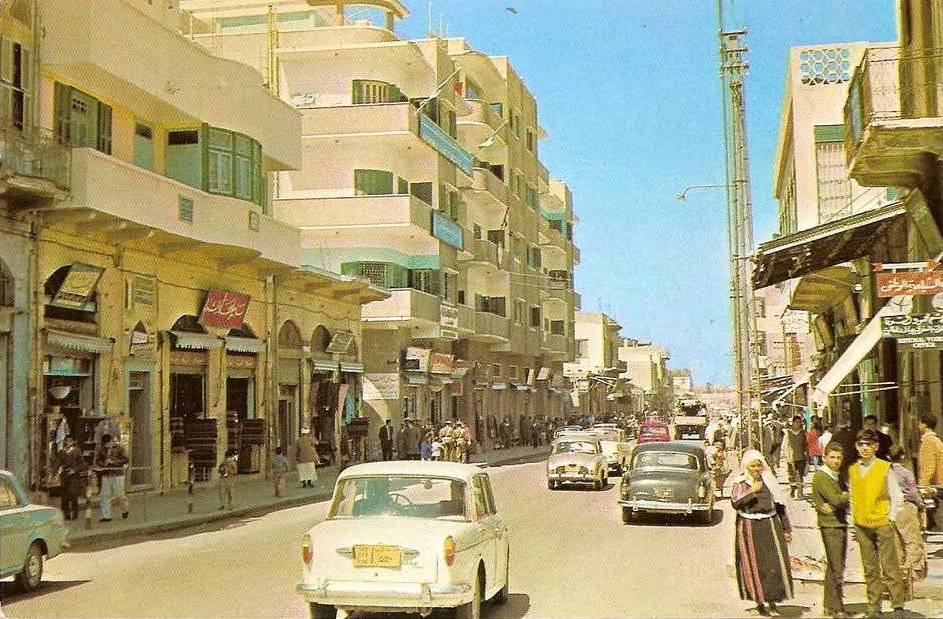The missing link: Re-connecting Gaza with the West Bank
By Khaled Diab
Gaza and the West Bank are effectively on different planets. Connecting them must be part of any lasting solution and would make a world of difference.

Monday 4 August 2014
Although there is a tendency among many Israelis to view Palestinians in Israel, the West Bank and Gaza as being distinct and separate groups, Palestinians themselves do not share this view and regard themselves as constituting a single nation.
And Israel's devastating and deadly onslaught in Gaza has resonated with Palestinians everywhere, leading many to declare “We are all Gaza now”.
Many Palestinians – in Israel, Jerusalem, the West Bank and diaspora – have long been great admirers of Gazan steadfastness and glorify its people's perceived irrepressible resistance and defiance, despite the enormous human cost this involves. “Every time [Gaza] explodes… it scratches the face of the enemy,” wrote the late Mahmoud Darwish, popularly regarded as Palestine's national poet, back in 1973. “Gaza is the vicious lesson and the radiant example for enemy and friend alike.”
Given that the majority of the tiny strip's population (1.2 million) are refugees from what is today Israel, a large number of Palestinians in Israel have family in Gaza, making the connection intimate and personal.
“You don't fully comprehend the pain and anger until your own family is hit,” said one Palestinian I know from al-Tira. Her uncle in Gaza had his house destroyed by an Israeli airstrike. Although they survived, they are now homeless with war raging all around them.
In Jerusalem and the West Bank, fewer people have family ties with Gaza, but they do possess a powerful sense of common nationhood and inter-Palestinian camaraderie, despite the separation imposed on them by Israel.
This is reflected in the almost-daily protests and clashes in solidarity with Gaza, as well as the largest Palestinian demonstration in recent years. In fact, it looks like the long-expected third intifada may have finally arrived and one of its sparks was Gaza.
That said, and despite the restrictions, there are some Gazans who live in the West Bank – to study, work or marry – and West Bankers who live in Gaza, usually for the purpose of marriage.
But the restrictions imposed on such movement are so draconian that they tear families apart. Even though the West Bank is, at its nearest point, just 40km away from Gaza, it might as well be in another galaxy. “Gaza and the West Bank seem like two separate and distant planets, with no way of getting from one to the other,” Maha Hijawi, who was born in the Gaza Strip and now lives with her husband and children in the West Bank, was reported as saying in a recent B'Tselem report.
“I'm raising the children alone, without their father by my side,” complains Maisoun Haj Ali whose husband moved to the West Bank for work in 2008 but has been unable to reunify his family since. “I suffer, because the children talk about him every day, asking when we'll go and live with him.”
And even celebrity does not help. For instance, the professional footballer Suleiman Obeid, who plays at both club and national level, was permitted to move to the West Bank in 2008 to play for a team there but his family were not allowed to join him. “Wanting to hug your baby and play with him, or when you think about sleeping with your wife or having more kids. These are basic needs that are a given for every person or husband,” observes Obeid.
Obeid has to make do with daily phone calls and the Web to keep in touch with his family. But this too comes at an emotional cost. “Every phone call or contact that we have, I feel pain, I feel heartbroken…Your eyes can see but your hands can't touch.”
For people like Obeid, the current situation must be intolerably painful, not knowing how safe his family is, powerless to fulfil every parent's natural instinct, to protect his kids from harm and the ugliness of the world.
The situation was not always like this. Although current generations may find it hard to conceive, for the first two decades following Israel's conquest of Gaza and the West Bank, Palestinians had almost complete freedom of movement. In fact, Gaza was once a prized beach and shopping retreat, not just for Palestinians but also for Israelis. Older Palestinians I meet speak fondly of the times they could just get in their cars or on a bus and go to Gaza.
These times are unlikely to return in any foreseeable future. Nevertheless, I am convinced that any durable and sustainable solution to the recurring confrontations between Israel and Gaza, and the repeated and compounding human tragedies it causes, is not only to lift the inhumane Israeli-Egyptian blockade but also to link Gaza with the West Bank.
The Oslo accords recognises the West Bank and Gaza are a single, integral territorial unit, but this has remained a dead letter. One major sticking point has been how to connect the two territories, since a chunk of Israel lies between them. However, there are numerous workable blueprints for building a “safe passage” which both connects the Palestinians and guarantees Israel's security from attack.
Even without a comprehensive peace agreement, Gaza and the West Bank must be physically, politically and administratively linked up to enable them to re-integrate their societies and economies. This will not only help end Gaza's harmful and counterproductive isolation, it would also enable the Palestinians to take a further step towards self-rule and self-determination.
____
Follow Khaled Diab on Twitter.
This article first appeared in Haaretz on 28 July 2014.


